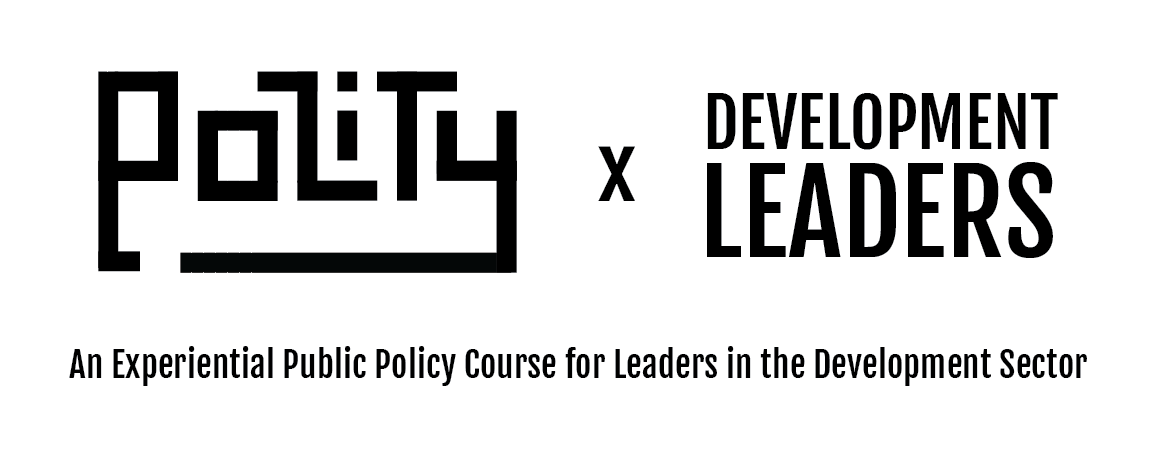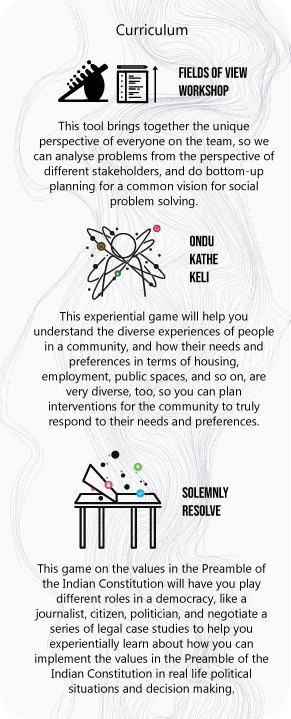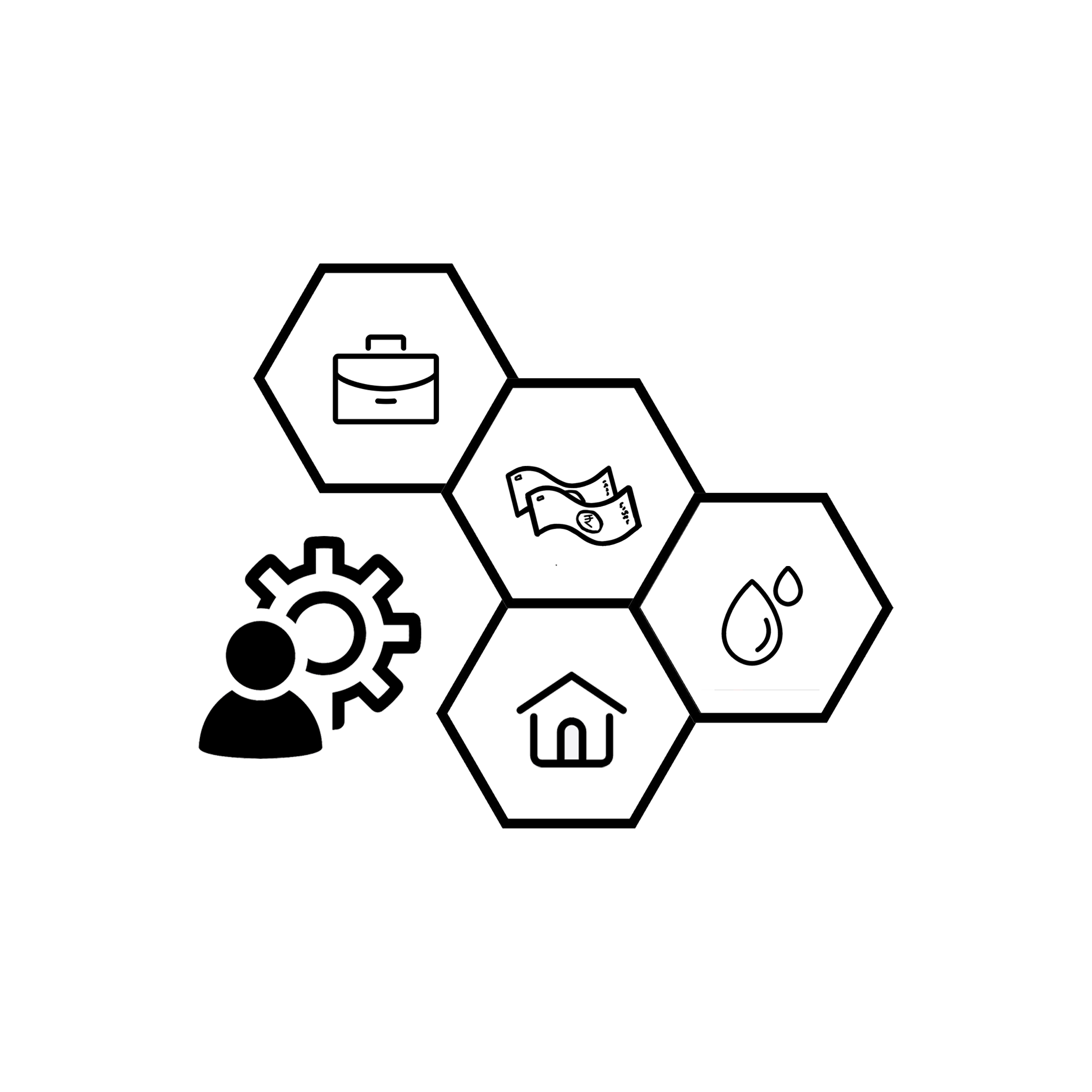Polity
- Overview
- Modules
- FORM
Imagine learning about wicked social problems, and their complex solutions, without having to read boring policy papers and theories, no analysing case studies and age old policies. Imagine learning to solve wicked problems by playing games!
Polity is Asia’s first experiential policy course!
In Polity we learn how to make appropriate climate change policy, gender equity policy, inclusive development policies through games and simulations! In Polity, you experience the life of a waste collector, a garment factory worker, to form appropriate policies that actually respond to their needs. You plan the water resources of a city, or design your own city from scratch(!) on systems dynamic tech models, and the predictive model, trained on real world data, tells you the impact of your decisions 5 , 10, 20 years later.
Polity is ushering in a new future of improved, appropriate and inclusive policy making in India.
Why Games for Policy?
Polity uses easy to play games, simulations, models and activities to get participants to experience the perspective of all stakeholders involved, experience and practice inclusive and bottom up visioning, strategizing and planning for the development of their communities.
- Games are an inclusive medium for education (as a pedagogical tool) and enhance collaboration because anyone can participate in them, irrespective of educational background, exposure and experience.
- Games are an extremely effective medium of learning because participants are more willing to take risks, be creative, and experiment, as they don’t have the risks of failure.
- Games allow for collecting intangible data in the form of preferences and biases that is crucial for policies.
- Games create an inexpensive and highly engaging medium to test various policies and their outcomes with different affected and influencing groups.
Objectives of the course
- Alternative method for data collection and analysis
- Bottom-up participatory data collection, planning, and practices
- Systemic solutioning for Wicked Problems
- Understanding different climate-associated risks, mitigation, and adaptation
- Understanding the use of serious games in the policy context
- Understanding Wicked Problems
- Understanding interconnectedness and intersectionality of sectors while measuring impact
- Visioning
These objectives will be tailored based on the target audience and the course requirements in discussions with the facilitators and convenors/organisers.










